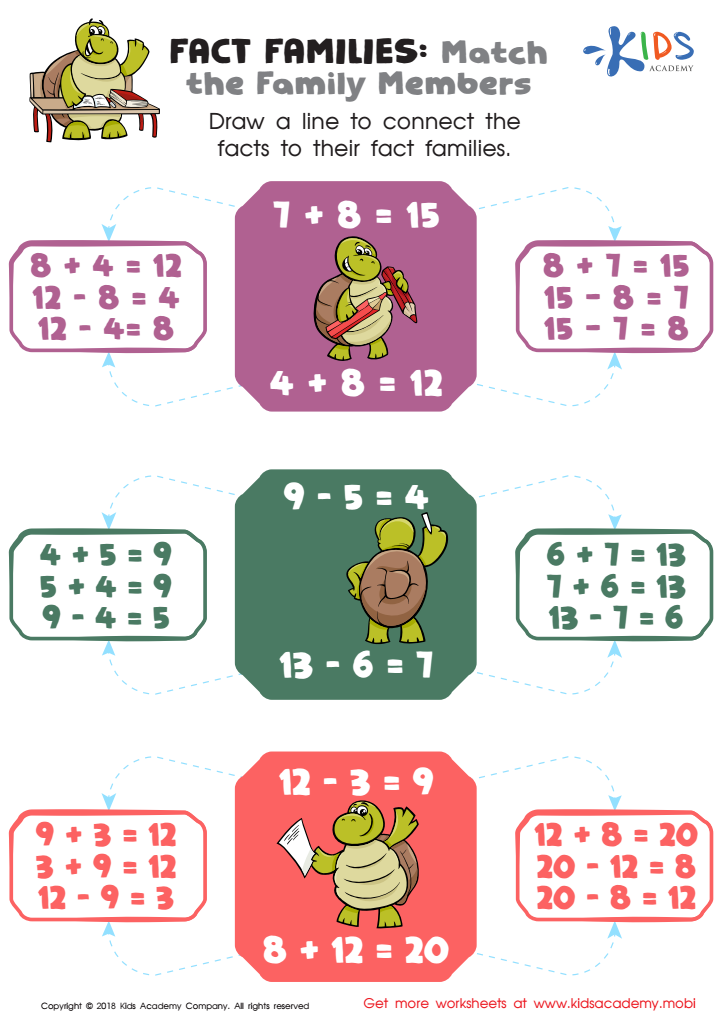Improve problem-solving skills Addition Worksheets for Ages 5-8
5 filtered results
-
From - To
Enhance your child's problem-solving skills with our engaging Addition Worksheets designed for ages 5-8! These interactive worksheets provide fun and effective ways to master addition concepts through a variety of exercises. By solving interesting math challenges, young learners will develop critical thinking abilities and confidence while honing their numerical skills. With a mix of visually appealing designs and approachable tasks, children will stay motivated and focused. Our resources cater to diverse learning styles, ensuring every child can excel. Visit our site to access these valuable worksheets and watch your child's math abilities grow! Boost their problem-solving prowess today!


Fact Families: Match Family Members Worksheet
Improving problem-solving skills in addition for children aged 5-8 is crucial for their overall development and future academic success. At this age, children are forming the foundational cognitive abilities that will support their learning in mathematics and beyond. Problem-solving not only enhances their numerical proficiency but also fosters critical thinking, creativity, and perseverance.
Parents and teachers should recognize that mathematics is more than just counting or memorizing. Engaging young learners in problem-solving encourages them to explore different strategies, ask questions, and understand the concepts behind addition rather than relying solely on rote learning. This approach cultivates a positive attitude towards math, making it an enjoyable and less intimidating subject.
Moreover, strong problem-solving skills can boost children’s confidence, enabling them to approach challenges with a growth mindset. As they encounter real-world situations that require addition, such as sharing candies or counting toys, these skills become invaluable. Supporting children in mastering addition through engaging problem-solving exercises equips them with tools they will use throughout their academic journey and in everyday life, ultimately laying a strong foundation for future success in all areas of learning.


 Assign to My Students
Assign to My Students


















